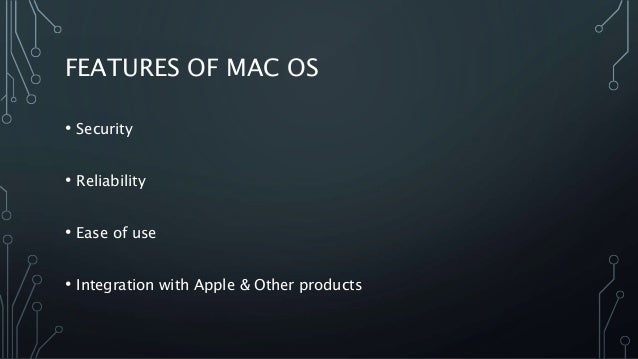Comparison Of Windows Xp Vista And Windows 7
. This page is a comparison of and. Windows XP and Windows Vista differ considerably in regards to their security architecture, networking technologies, management and administration, shell and user interface, and mobile computing. Windows XP has suffered criticism for security problems and issues with performance.
Vista has received criticism for issues with performance and product activation. Another common criticism of Vista concerns the integration of new forms of into the operating system, and (UAC) security technology. Contents. Compatibility Windows Vista faces problems with many of the and utility programs that work in Windows XP. As of July 2007, there were about 2,000 applications that specifically carried the 'Vista Compatibility Logo', although the majority of applications without the logo will run without any problems. This number is low compared to the number of programs that can currently work under XP, either natively or in simulation modality. Performance Initial performance tests have demonstrated that Windows XP outperforms Vista in several productivity areas.
File copy operations are speculated to be one area where Vista performs better than XP. In a test run by CRN Test Center, a 1.25 GB file was copied from a network share to each desktop. For XP, it took 2 minutes and 54 seconds, for Vista with SP1 it took 2 minutes and 29 seconds. The Vista implementation of the file copy is arguably more complete and correct as the file does not register as being transferred until it has completely transferred; in Windows XP, the file completed dialogue box is displayed prior to the file actually finishing its copy or transfer, with the file completing after the dialogue is displayed. This can cause an issue if the storage device is ejected prior to the file being successfully transferred or copied in Windows XP due to the dialogue box's premature prompt. Another test was performed by in January 2007. Applications such as and the graphics suite SPECviewperf 9.03 suffered heavily from the lack of support for the graphics library under Vista.
They reached the conclusion that Windows Vista clearly is not a great new performer when it comes to single applications at maximum speed. On the other hand, they did not find evidence that Windows Vista's (DWM) consumes more energy than Windows XP's window manager. All of the tests were performed on a computer with an 2.93 GHz X6800 processor, 2× 1024 MB DDR2-800, HIS Radeon X1900XTX IceQ3, 150 GB WD1500ADFD and a GA-965P-DQ6. Scientific paper about concludes that Windows Vista doesn't provide a better overall performance on the high-end computer system compared to Windows XP. Some performance improvements can be seen in memory management and graphics display, but other parts of OS have equal or lower performance than Windows XP. On the low-end computer system, Windows XP outperforms Windows Vista in most tested areas.
- Windows compared: Windows 7 vs Vista vs XP. By PC Plus 2009-07-13T11:30:00.193Z. Operating systems Which Windows is best? We compare them all to find out.
- If you skipped over Windows Vista like so many others have, you may be in for a shock when you upgrade from Windows XP to Windows 7. Microsoft’s newest ope.
Hi There, Can you please help me make a better decision? I am faced with a decision to make between windows Vista and the new Windows 7. I am currently using Windows.
Windows OS network performance depends on the packet size and used protocol. However, in general, Windows Vista compared to Windows XP shows better network performance particularly for the medium-sized packets. Security Security was a top priority during. In Windows XP, every user is set up as an by default (unless added through Computer Management). As a result, most home users ran all their software with Administrator access. However, this left most users unwittingly open to potential security threats, such as hacking and downloads.

A large amount of existing software doesn’t run well as a standard user, due to developers not implementing the in their design and testing. For example, many poorly written applications often assume incorrectly that they will have read and write access to the entire filesystem and system. Denying such an application access to any of these assumed rights can cause the application to fail. Sometimes, a person logged on as a standard user under Windows XP can't perform user-specific tasks such as changing the and calendar, changing the computer's, or changing the computer's settings due to so-called 'LUA bugs'. In Windows Vista improves this by limiting to standard user privileges until an administrator authorizes an increase in privilege level. In this way, UAC prevents users from making inadvertent changes to system settings and locks down the computer to prevent unauthorized applications from installing or performing malicious actions.
Windows Vista is able to work around many LUA bugs in third party applications with its file and Registry virtualisation feature, as well as application compatibility. 's Protected Mode utilizes User Account Control to isolate IE from other applications and prevent it from writing content to any location, except the Temporary Internet Files folder. Internet Explorer 7 is available for XP, but does not support Protected Mode on XP.
Windows Vista also includes, a spyware scanning and removal tool that is also available for Windows XP for free. Enterprise and Ultimate include, which aims to help protect data in the case of stolen devices. Vista implements, that makes it considerably more difficult for malicious code to exploit than on previous versions of Windows, particularly on 64-bit systems.
Windows Xp Vista Theme
Furthermore, Vista implements heap management enhancements that make it much more difficult to carry out attacks. 64-bit editions of Windows Vista require all kernel-mode drivers to be digitally signed, initially making it difficult for to install until managed to overcome this obstacle in 2010 by subverting the. The firewall in Vista has been rewritten, allowing both outbound as well as inbound traffic to be blocked.